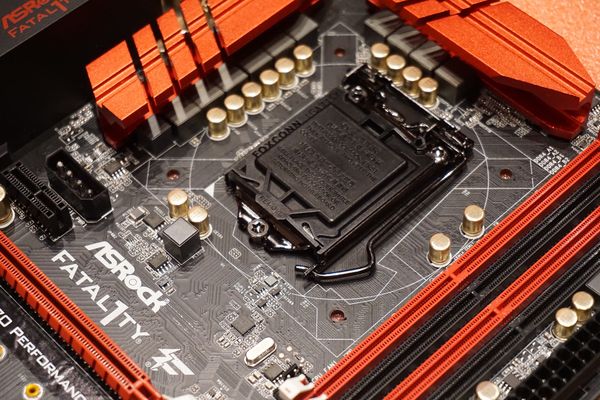

Not long ago we published an article looking at overclocking on non-Z170 motherboards, in which we stated that you would lose Hyper-Threading when overclocking on non-Z170 boards. There was a miscommunication between us and Asrock, however, and we were incorrectly informed about what features would be lost when enabling overclocking on Asrock’s non-Z170 motherboards.
The change that ASRock made to the its four non-Z170 motherboards with overclocking features was to add a little additional circuitry that enables the system to base clock overclock without becoming unstable. When the motherboard is set to a base clock of 100 MHz, this additional circuitry remains dormant, enabling the system to operate normally with all features, including C-States and Hyper-Threading, enabled.
When you start to overclock on these boards, and the base clock is increased above 100 MHz, however, the system automatically disables a few features to ensure stability. Contrary to what we originally reported, Hyper-Threading is not disabled when base clock overclocking. This is easily the most significant piece of new information that Asrock gave us, as it means that Hyper-Threaded processors, such as the Xeon CPU that are only supported on C232 and C236 motherboards, can be overclocked without losing a considerable amount of multitasking performance.
Instead, the only features that are disabled when you cross the 100 MHz threshold are C-States and Turbo Boost. Although these features are helpful to increasing performance and reducing heat and power consumption inside of the system, most overclockers would be willing to make that trade. Power saving features such as C-States are often disabled when overclocking in order to hit higher clock speeds, and when using BCLK overclocking, users shouldn’t have any problems matching and even exceeding the Turbo Boost clock speeds.
 Asrock sent us along a few images of a Skylake Core i7 overclocked on its E3V5 Performance Gaming/OC C232 motherboard and a Core i3 overclocked on its B150 Gaming OC board with Hyper-Threading enabled as further proof that these boards do not disable Hyper-Threading.
Asrock sent us along a few images of a Skylake Core i7 overclocked on its E3V5 Performance Gaming/OC C232 motherboard and a Core i3 overclocked on its B150 Gaming OC board with Hyper-Threading enabled as further proof that these boards do not disable Hyper-Threading.
WIth this new information in mind, these motherboards should make excellent alternatives to Z170 motherboards for users who want to overclock on a budget.
[SOURCE:-tomshardware]
